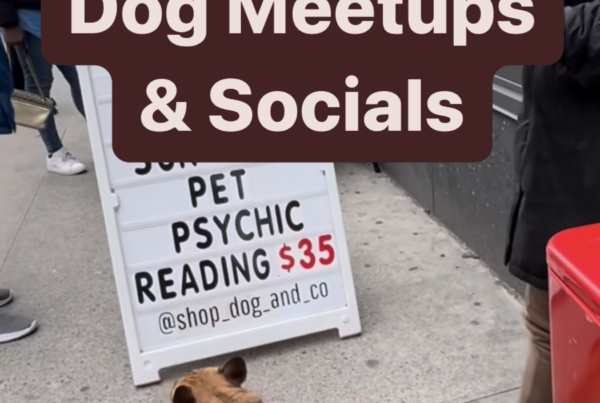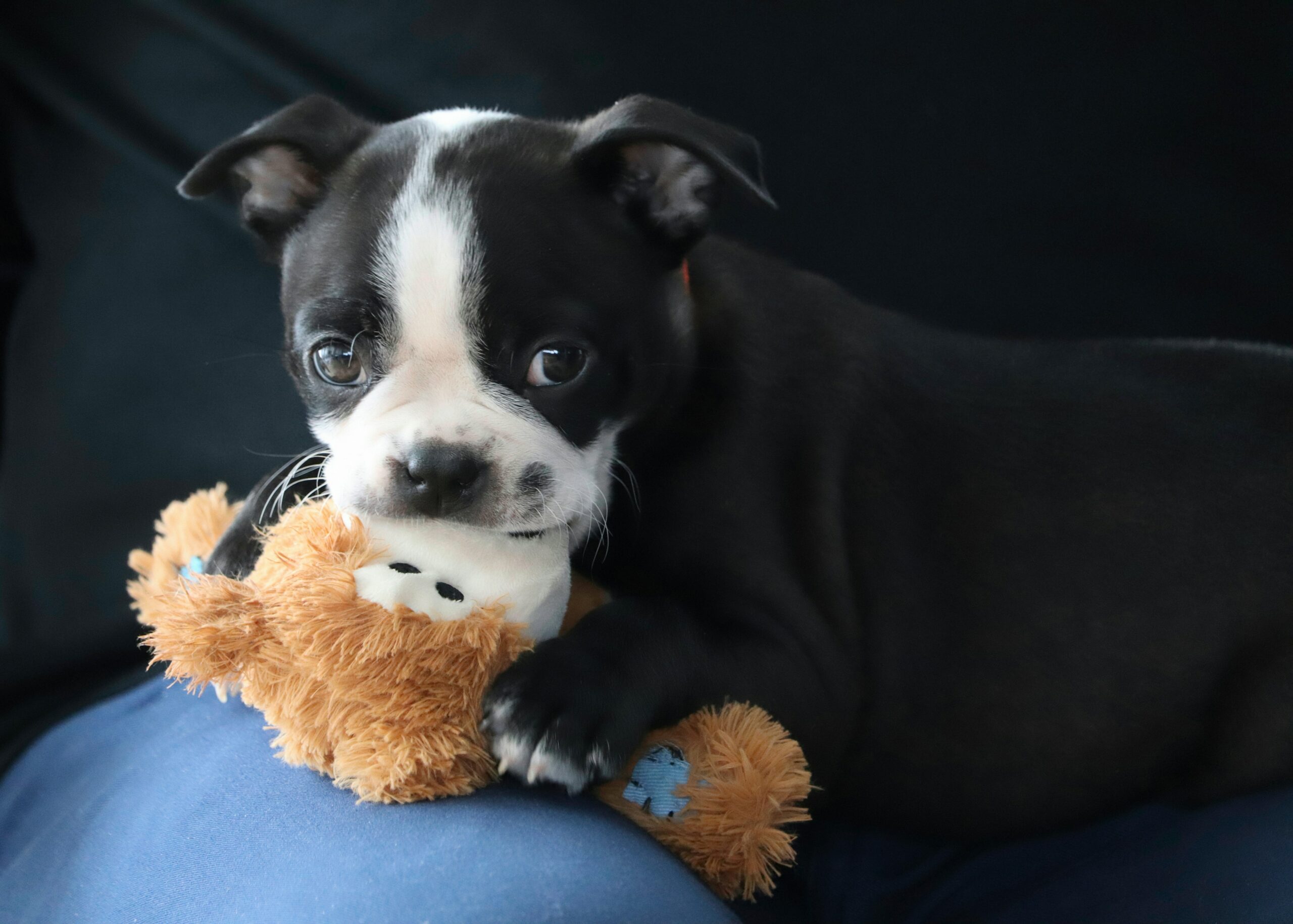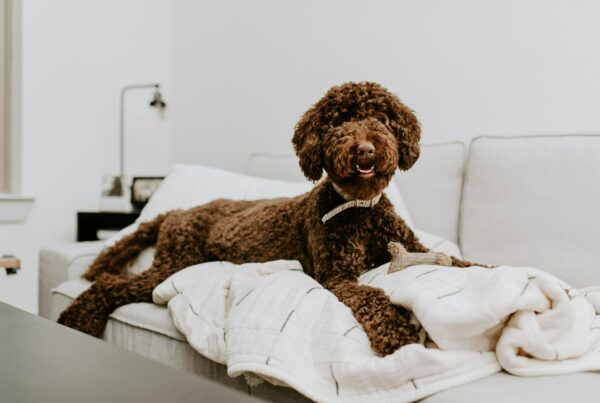
Dogs are instinctual pack animals – when you remember that they are descendants of wolves, it is easy to imagine them moving together as a pack.
Socialization is essentially letting a dog learn how to be a dog. By encouraging our children to play with other children, we are teaching them how to behave in a socially acceptable way – how to share, to interact and learn rules – and the same is needed for dogs.

Puppy Socialization
As a dog owner, it is your responsibility to encourage your very excitable little puppy to mature into a happy and obedient adult dog. One crucial part of doing this is socialization.
Socialization should be a fun process for both owner and puppy. You just need to expose your puppy to as many new people, places, dogs and things as possible during the first six – eight months of their life, which can be hugely entertaining for both you and your puppy.
There are many benefits to actively making sure this happens on a daily basis in the first six months, for both you and your puppy:
- Puppies are very receptive to learning
- It can reduce depression and fear
- It makes trips to the vet and groomer easier and without fear
- Your puppy is likely to be less susceptible to aggression
- It makes transportation in the car easier by reducing anxiety
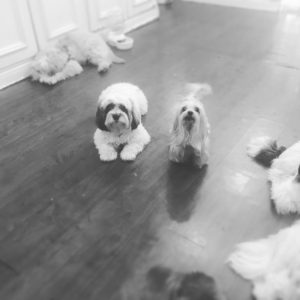
Adult Dog Socialization
One of the first considerations when bringing an adult dog into your home is to find out how much socialization they have been exposed to and if there are any resulting problems.
For example, if you discover that the dog is frightened of people wearing hats, you will have to start gently introducing the dog to a friend wearing a hat in the home. In this case, it is advisable to ask for professional help so that they can support you with an expert action plan.
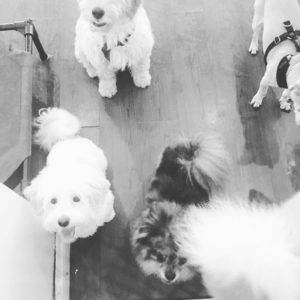
Maintaining Socialization
Socialization should continue for the rest of your dog’s life. Just like humans, dogs don’t like to be cooped up and can get depressed and lonely if they have no social interaction.
With a daily trip to your local park, doggy daycare your dog will begin to recognise and make friends with other dogs. However, this can be a bit hit and miss sometimes – often people visit the park at different times, or your local dog park might not have one that you feel is a fit for your dogs socialization goals and needs.
There are so many dog related activities out there where you can have some fun and enjoy time with your dog while making sure that they socialize. How about organizing a dog party for your dog and his pals? Or why not take your canine pal to dog obstacle courses, dog festivals or days at the beach? Have fun researching what’s out there and mark some events on the calendar for the year ahead.
Take a look on the internet – there are likely to be numerous dog meet-ups in your local area, where you can meet like-minded dog owners or dog nannies and your dogs get the social interaction that makes them happy. Dog handling classes are also great for socialization – for both you and your dog!
You can also organize dog play-dates – all this contributes to your dog’s wellbeing and happiness and in turn, this also bonds your own relationship together.

Problems Caused by Failure to Socialize
Undersocialized dogs can exhibit many problems, including:
- Aggression and fear towards people – sometimes aggression and fear of people can be caused by insufficient socialization at a young age
- Aggression towards other dogs – sometimes caused by insufficient socialization to dogs (although just like humans, dogs won’t naturally be friends with all dogs!)
- Depression, loneliness and anxiety
Proper socialization ensures your dog is confident and amicable when meeting other dogs for the first time and that any problems are resolved without aggression.
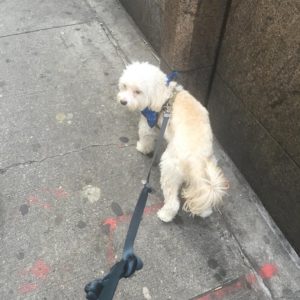
Check Your Own Behavior
What is fascinating is that dog to dog aggression is often accidentally encouraged by owners.
When an owner is walking their dog and sees another dog they might automatically tighten the leash and even shout at their dog. The dog then senses that stress and becomes conditioned to feel tension and anxiety when another dog approaches. The dog then barks and becomes aggressive to ward off the other dog, as he associates other dogs with his own punishment.
Not only that, but tightening the leash means that your dog is forced into a position where they can’t run away, so they may feel they have to fight back as a defence mechanism. As the owner pulls the leash, the dog is forced onto its front feet, which the other dog sees as menacing.
If you are happy and relaxed when another dog approaches, your dog will pick up on and reflect your happy mood.
Make sure that you don’t force your dog to socialize – encourage them to interact affably, but only when they are ready.
Socialization teaches a dog how to behave appropriately – to be gentle around children, not to bite or jump up at people and how to interact with other dogs. Not only this, dogs are pack animals and socialization is a big part of their happiness and quality of life.
This article was submitted as a guest blogger Holly Barry.

